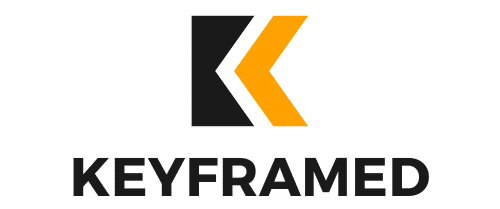Today, as we stand in the era of the digital revolution, we are witnessing a proliferation of devices that extend beyond the conventional computer. Smartphones, wearables, smart home appliances, industrial machinery, vehicles, and even entire cities are becoming interconnected. These devices, collectively known as the Internet of Things (IoT), are reshaping the way businesses operate, offering unprecedented opportunities for real-time data collection and enhancing operational efficiency.
Understanding the Basics of IoT for Businesses
Before diving into the applications of IoT in businesses, it’s necessary to understand the foundational elements of this technology. The term IoT refers to the interconnected network of physical devices that communicate and exchange data with each other over the internet. These devices are embedded with sensors, software, and other technologies that allow them to send and receive data.
In the same genre : How to Craft a High-Impact Social Responsibility Strategy That Aligns with Your Business Values?
The rise of IoT in the business world can be attributed to its potential to provide continuous streams of real-time, valuable data. With this data at their disposal, businesses can gain insights into their operations, customer behavior, market trends, and more. Furthermore, IoT devices can automate routine tasks, allowing businesses to improve their operational efficiency and reduce costs.
The Role of IoT in Data Collection for Businesses
The IoT has revolutionized the way businesses gather and utilize data. Today, IoT devices are used to collect a vast array of data, from consumer behavior to equipment performance in real-time. This data is then analyzed and used to make knowledgeable decisions that drive growth and efficiency.
Have you seen this : What Are the Innovative Approaches to Employee Training Using Gamification?
Consumer Behavior and Trends: Businesses can use IoT devices to gather real-time information about their customers. For instance, retail stores can use smart shelves equipped with weight sensors to track which products are popular with consumers. Similarly, online businesses can use cookies and other tracking tools to gather data about user behavior and preferences.
Operational Efficiency: IoT devices can also collect data on the performance of business operations. For example, manufacturers can use smart machinery equipped with sensors to monitor the performance and condition of their equipment. This real-time data can help businesses identify areas where efficiency can be improved and costs reduced.
Using IoT for Operational Efficiency
Beyond data collection, the IoT also opens up possibilities for enhancing operational efficiency. By automating routine tasks, enabling predictive maintenance, and facilitating remote monitoring, IoT devices can help businesses streamline their operations and improve their bottom line.
Automation of Routine Tasks: One of the fundamental benefits of IoT in business is the automation of routine tasks. For example, businesses can use smart devices to automate inventory management, reducing the need for manual checks and data entry. This not only saves time and reduces human error but also allows businesses to reallocate resources to more strategic tasks.
Predictive Maintenance: Predictive maintenance is another area where businesses can benefit from IoT. By equipping machinery and equipment with IoT sensors, businesses can monitor their condition in real-time and predict potential failures before they occur. This helps to prevent costly downtime and extends the lifespan of equipment.
Remote Monitoring: IoT devices also enable remote monitoring of business operations. This is particularly beneficial for businesses with multiple locations or those that operate in hard-to-reach areas. With IoT, businesses can monitor the performance of their operations from anywhere, at any time, allowing them to respond promptly to any issues and ensure continuity of service.
Implementing IoT in Your Business
The implementation of IoT in business begins with a clear understanding of your business needs and objectives. A successful IoT strategy takes into consideration the specific needs of your business, the type of data you need to collect, and the ways in which IoT can improve your operational efficiency.
Choosing the right IoT devices for your business is a crucial step in this process. These devices should be capable of collecting the necessary data and integrating with your current systems. Additionally, they should be secure and reliable to ensure the continuity of your operations.
It’s also important to invest in IoT analytics software. This software will enable you to analyze the data collected by your IoT devices and extract meaningful insights. These insights can guide your decision-making and drive business growth.
Finally, it’s crucial to consider the security implications of implementing IoT in your business. As with any technology, IoT comes with its own set of security risks. It’s important to implement robust security measures to protect your data and devices from potential threats.
The Future of IoT in Business
As IoT technology continues to evolve, its applications in business are set to expand. Future advancements in AI and machine learning will enable more sophisticated data analysis and decision-making. Additionally, as 5G technology becomes more widespread, we can expect to see a surge in the number of connected devices and the volume of data they generate.
In the future, businesses that harness the power of IoT will be at the forefront of innovation. They will be able to gain deeper insights into their operations, make more informed decisions, and achieve greater operational efficiency. However, to fully reap the benefits of IoT, businesses need to embrace this technology and integrate it into their operations strategically and securely. Without a doubt, the IoT represents a significant opportunity for businesses to transform and thrive in the digital age.
IoT and Data Security in Businesses
The rapid proliferation of IoT devices in the business landscape brings along notable security challenges. As businesses incorporate more IoT devices into their processes, they inevitably expose themselves to a higher degree of risk. Data security becomes a crucial concern as these devices collect, store, and transmit vast amounts of sensitive data.
One primary security concern is data breaches, where unauthorized individuals gain access to confidential data. A breach can have severe consequences, including financial losses, reputational damage, and legal penalties for non-compliance with data protection regulations.
Another issue is the possibility of cyber-attacks on the IoT devices themselves. Hackers could potentially gain control of these devices, disrupting business operations or even using them as gateways to infiltrate the business’s entire network.
To mitigate these risks, businesses need to prioritize security when implementing IoT. This includes securing the devices themselves, the data they hold, and the networks they connect to. Businesses should consider using encryption for data transmission, ensuring that only authorized individuals have access to the data. They must also ensure that their IoT devices are equipped with the latest security features and that firmware and software are regularly updated to protect against new threats.
Moreover, businesses should also create a robust response plan to handle any potential data breaches. This plan should detail the steps to be taken in the event of a breach, including identifying the breach, containing the incident, and notifying the affected parties.
Conclusion
The integration of IoT devices into business operations undeniably presents a wealth of opportunities. The ability to collect real-time data provides businesses with invaluable insights into their operations and customer behavior. Coupled with the potential for enhanced operational efficiency through automation and predictive maintenance, it’s clear that IoT is set to revolutionize the way businesses operate.
However, embracing IoT is not without challenges. Businesses must carefully navigate the complexities of selecting the appropriate IoT devices, integrating them with existing systems, and managing the voluminous data they produce. Above all, the importance of data security cannot be overstated, and businesses must take proactive measures to safeguard their data and devices.
Despite these challenges, the potential benefits of IoT outweigh the risks for most businesses. As technology continues to evolve, businesses that strategically and securely adopt IoT will undoubtedly be at the forefront of innovation and efficiency. In the era of digital transformation, the ability to leverage IoT technology will be a key differentiator for businesses aiming to stay competitive and thrive. Indeed, the future of business lies in harnessing the power of IoT.











